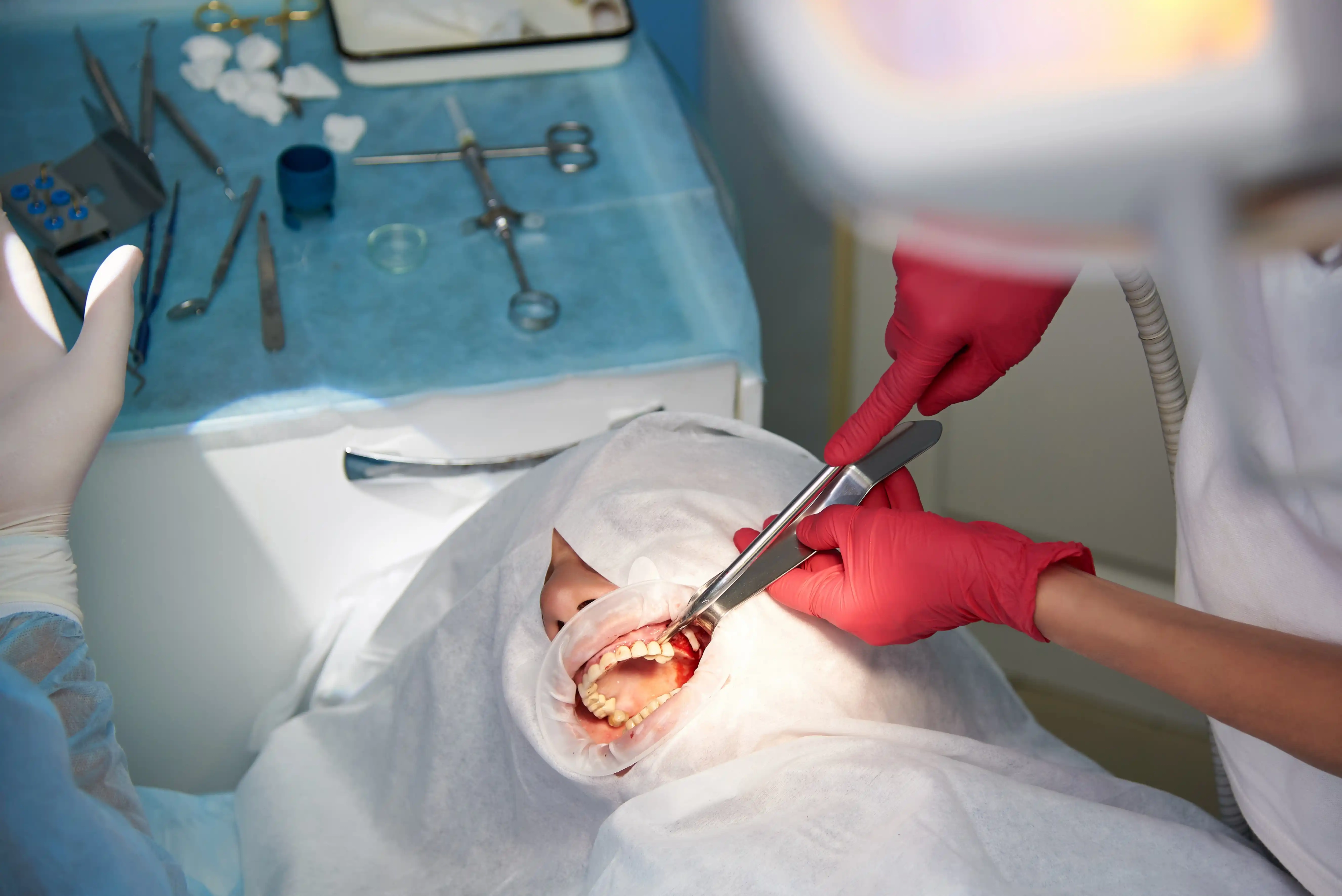Sinus Infections Can Be the Cause
When experiencing an unexpected toothache, oftentimes it’s not actually your teeth causing discomfort but pressure from your sinuses – as the roots of upper back teeth lie near or even penetrate the maxillary sinus cavity.
Sinuses are generally clean environments; however, dental infections may irritate and disrupt its ostium over time, potentially leading to an infection with dental roots originating in this sinus space. This condition is known as odontogenic sinusitis.
Symptoms
Sinus infections often resemble toothaches in terms of pain sensation. This is because maxillary sinus passages are in close proximity to the roots of upper back teeth. When infected sinuses put pressure on nerves that enter these roots and create what can feel like tooth pain; many mistakenly believe they have toothache when actually it’s just sinus pressure!
The sinuses are hollow passages within the skull that allow air to travel from outside into your lungs before becoming warm and humidified as it travels through them. Unfortunately, infections can arise when bacteria invade these passageways, leading to inflammation which then misleads your brain into mistaking this inflammation for toothache symptoms. While infections of sinuses aren’t as frequent as dental infections, symptoms may still cause similar issues that mimic tooth pain.
When the sinus lining becomes inflamed and releases pus, this infection may spread directly to the roots of teeth and lead to dental abscesses – painful infections which destroy bone in the jawbone, potentially leading to total tooth loss if left untreated. If an abscess is caused by dental infection, patients should visit their dentist immediately and receive appropriate treatments in order to avoid further complications such as this one.
Sinus infections often produce an unpleasant taste and smell in the mouth due to pus leaking out from infected tissues, and may be accompanied by fever, headaches and runny noses.
If an infection spreads to other parts of the sinus cavity, it can result in facial pain and an swollen appearance of the face. Furthermore, this discomfort could extend beyond just facial features to other parts of mouth and throat or even neck and forehead skin.
Over-the-counter pain relievers such as ibuprofen or acetaminophen can provide temporary relief from sinusitis-related discomfort. Furthermore, salt water rinses may help thin mucus production and drain sinuses more effectively; additionally, humidifiers and decongestants may provide additional assistance.
Diagnosis
If your toothache is linked to sinus issues, the source is often pressure on the lining of the nasal cavity or maxillary sinus. Symptoms may include persistent runny nose, clogged sinuses on one side of your face, reddening of one eye on that side and musty or metallic taste in your mouth. Toothache related to sinus issues tends to worsen morning or night and is sometimes relieved by clearing away food debris in that area; often diagnosed by medical doctors and treated with sinus medications or antibiotics but this does nothing about treating its source; ultimately leaving patients suffering chronic sinusitis.
Dental infections account for up to 30% of cases of sinusitis. This is likely due to their proximity to maxillary sinus cavities; bacteria from teeth can easily travel there and cause infection there – an effect referred to as “odontogenic sinusitis”, especially among older individuals.
Visit an oral surgeon or dentist as the easiest way to determine whether your tooth pain is the result of sinus issues. They can take x-rays of your area in question and see whether it matches up with dental infection or sinusitis, and may even examine your face to check for swollen sinuses as this is usually indicative of something being amiss with one’s sinuses.
If your sinus pain could be related to tooth or jaw issues, schedule an appointment with our Gainesville dentist immediately. We can help resolve the issue to relieve your symptoms.
No matter if it is for sinus infection or toothache, we have you covered at West U Family Dental! Give us a call now to book an appointment – we welcome most insurance plans as well as flexible financing solutions! Let us know if any questions arise – we would be more than happy to assist! Have an amazing day!
Treatment
Sinuses, air-filled passages located near facial bones, serve to moisten, warm and filter the air we breathe. Unfortunately, sometimes they can become infected leading to congestion and sinus pressure that irritates tooth roots causing pain – usually felt most acutely in top rear molars close to sinuses but sometimes also felt in upper front teeth.
Step one in treating sinus-induced tooth pain is to locate its source. A dentist will typically conduct this step through an X-ray, which will show exactly where the problem area lies. A CBCT scan may also prove helpful.
Once the cause of dental pain has been identified, antibiotics are an excellent solution to help decrease infection in the sinus and tooth and relieve associated discomfort.
If the infection affects one of your back molars, a root canal procedure will likely be necessary to preserve your tooth. This is because bacteria from an infected tooth can enter the sinuses and spread infection even further – often leading to cyst-like structures filled with pus forming which are known as dental abscesses.
Avoid activities that increase sinus pressure, such as blowing your nose or suppressing sneezes. Over-the-counter decongestant medications like Sudafed may help relieve sinus pressure; if you have high blood pressure, check with your physician first before taking them.
Hot and cold therapy are also useful treatments for sinus-related tooth pain. Saltwater rinses can also soothe inflammation while treating oral wounds – use 30 seconds to one minute rinses several times daily until symptoms subside. Topical numbing agents containing benzocaine such as Anbesol and Orajel may offer relief; for more persistent discomfort visit your dentist as soon as possible so they can diagnose and treat underlying dental issues that could prevent future infections.
Prevention
Toothache may not always be caused by dental decay; sometimes it could be an infection in your sinuses that’s the culprit. By visiting a dentist promptly and treating the problem promptly with appropriate medications, dental practitioners can help ease the pressure in your sinuses as well as alleviate toothache caused by it. Left untreated, sinus infections could develop into serious health concerns that require further medical care and can even threaten other aspects of health care systems.
Sinuses are hollow air-filled spaces located inside your skull that serve to warm and humidify air before it enters the lungs, as well as producing mucus to filter dust out before reaching your lungs. When inflamed, sinus cavities can produce congestion and pressure causing headaches as well as other symptoms – some toothache pain may feel similar, so it is essential that proper differentiation takes place so you receive appropriate treatment.
Many people with sinus headaches remain unaware that they have a dental issue. Toothaches are most commonly caused by dental infections, cavities or gum disease – however sinusitis infections may also contribute to them, as the upper back teeth are closer to your sinus cavities and therefore feel them most intensely.
Sinus infections can cause unbearably painful toothaches that last days or weeks before gradually dissipating; left untreated they may recur frequently requiring dental professionals and oral surgeons to intervene quickly and treat accordingly. Therefore it’s crucial that any toothache be taken seriously by seeking professional advice immediately from either one.
There are various strategies you can employ to prevent sinus infections. Sleep and diet rich in fiber and Vitamin C are known to boost immunity; drinking lots of water also hydrates membranes lining your sinuses to promote drainage; using a sinus rinse, nasal spray or decongestant can also provide pain relief and congestion relief.
Sinus infections can be debilitatingly painful. If you are suffering from one resulting in toothache, please reach out immediately so we can schedule an endodontic appointment and our doctors can give the appropriate care and attention needed to resolve both dental and sinus issues as quickly as possible.
Disclaimer: The content on this blog is intended for general informational purposes only. It is not a substitute for professional medical advice, diagnosis, or treatment. Always consult qualified healthcare providers for personalized advice. Information regarding plastic surgery, dental treatment, hair transplant, and other medical procedures is educational and not a guarantee of results. We do not assume liability for actions taken based on blog content. Medical knowledge evolves; verify information and consult professionals. External links do not imply endorsement. By using this blog, you agree to these terms.










